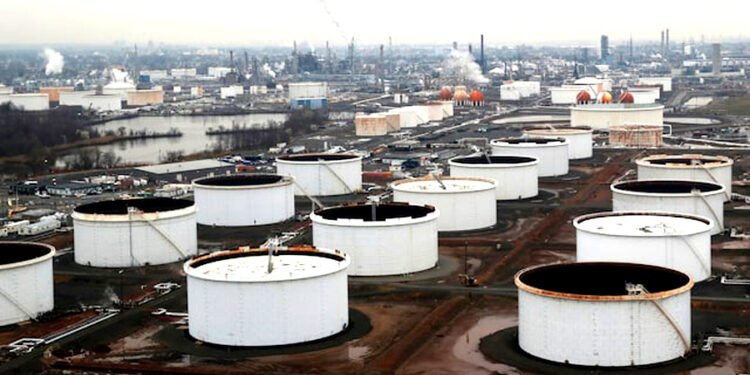Any delay in rate cuts could slow economic growth and dampen demand for oil.
Oil prices rose on Thursday, rebounding from three days of losses, on expectations the lower levels may prompt the US, the world’s biggest crude consumer, to start replenishing its strategic reserve, putting a floor under prices.
Still, prices fell more than 3 per cent on Wednesday to a seven-week after the US Federal Reserve kept interest rates steady, which may curtail economic growth this year and limit oil demand increase. Crude was also pressured by an unexpected increase in US crude inventories and signs of an impending Israel-Hamas ceasefire that would ease Middle East supply concerns, as per Reuters reports.
Brent crude futures for July gained 48 cents, or 0.6 per cent, to $83.92 a barrel by 0400 GMT on Thursday. US West Texas Intermediate (WTI) crude for June climbed 46 cents, or 0.6 per cent, to $79.46 a barrel.
In the Middle East, expectations grew that a ceasefire agreement between Israel and Hamas could be in sight following a renewed push led by Egypt.
“The oil market was supported by speculation that if WTI falls below $79, the US will move to build up its strategic reserves,” said Hiroyuki Kikukawa, president of NS Trading, a unit of Nissan Securities.
The US has said it aims to replenish the Strategic Petroleum Reserve (SPR) after a historic sale from the emergency stockpile in 2022 and wants to buy back oil at $79 a barrel or less.
Still, Israeli Prime Minister Benjamin Netanyahu has vowed to go ahead with a long-promised assault on the southern Gaza city of Rafah despite the US position and a UN warning that it would lead to “tragedy”.
“As the impact of the US crude stock-build and the Fed signalling higher-for-longer rates is close to being fully baked in, attention will turn towards the outcome of the Gaza talks,” said Vandana Hari, founder of oil market analysis provider Vanda Insights.
“As long as the latest bout of optimism over a ceasefire sustains, I expect a continued downside bias in crude,” Hari added.
The US Energy Information Administration (EIA) said crude inventories rose by 7.3 million barrels to 460.9 million barrels in the week ended April 26, compared with analysts’ expectations in a Reuters poll for a 1.1 million-barrel draw.
Crude stocks were at the highest point since June, the EIA said.
The US Federal Reserve held interest rates steady on Wednesday and signalled it is still leaning towards eventual reductions in borrowing costs, but put a red flag on recent disappointing inflation readings.
Still, continuing supply reductions by the Organization of the Petroleum Exporting Countries (OPEC) and its allies, known as OPEC+, will support prices.
Analysts at Citi Research expects OPEC+ to hold output cuts through the second half of the year as it meets on June 1.
However, “if prices move to a bull case $90-100+ range, OPEC+ would likely ease cuts, providing a soft ceiling for oil,” they said in a note.









































































